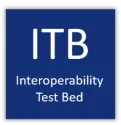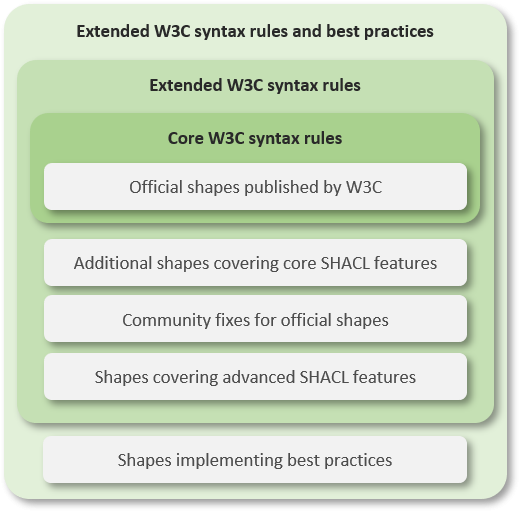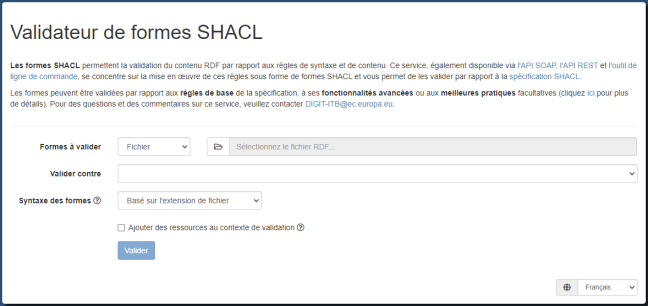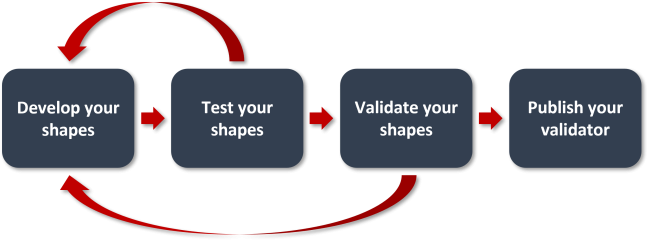
The Test Bed team has updated its SHACL shape validator to make it available in all official EU languages strengthening further its support for RDF specification developers.

The Resource Description Framework (RDF) is being increasingly used by organisations to publish and exchange data on the web in an interoperable manner. In support of specification owners defining RDF-based specifications, the Test Bed offers its popular RDF validator that has been used successfully both at European level (e.g. the DCAP-AP validator) and at National level (e.g. the DCAT-AP.de validator) to support specifications with validation services. At the core of these validators, and of RDF validation in general, is the Shapes Constraint Language (SHACL), the standard means of defining validation rules for RDF content. In practice, validating RDF content against its target specification typically means ensuring it matches the specifications’ prescribed SHACL shapes.
To support specification developers in authoring SHACL shapes, the Test Bed has been offering since May 2020 its SHACL shape validator, a validator focused on testing the SHACL shapes themselves. This validator allows validation against SHACL core syntax rules, the extended rules covering SHACL advanced features, as well as best practices contributed by SHACL experts from various communities.

The validator is available via several means, including a web user interface, REST API, SOAP API, and command-line tool. Since its launch it has seen significant use, with specification developers attesting to its value in helping them develop correct and complete SHACL shapes.
Extending the support to RDF specification developers, the Test Bed has now published an update to the SHACL shape validator, making it available in all official EU languages. Developers can now select their language of choice, either through the list presented in the user interface or via a parameter passed when using the validator via its other APIs.

Making available the SHACL shape validator in several languages brings it a step closer to the different developer communities spread across Europe and the World, reducing the barrier in its use. This is important as the validator represents a key element of the development process that the Test Bed’s experts advocate for the development of SHACL shapes. Specifically:
- Develop the shapes for your specification.
- Test sample content against your shapes to ensure they produce your expected results. Do this either by using the Test Bed’s generic RDF validator, or by creating your own.
- Validate your shapes to make sure they are fully correct and aligned to best practices. Do this by using the SHACL shape validator.
- Configure your specification’s validator using your developed (and validated) shapes. Do this by using the Test Bed’s RDF validation services as best matches your preferences.

The Test Bed through its RDF validation services, its generic validator and the SHACL shape validator, supports RDF specification developers along each step of this process. If you are unfamiliar with RDF, SHACL or the Test Bed’s RDF validation capabilities, a good introduction is provided by the Test Bed’s RDF validation guide. General details on the Test Bed itself can be found in its Joinup space with its value proposition being a good starting point for newcomers. Finally, if you are interested in receiving the Test Bed’s news, apart from subscribing to notifications, you may also follow the Interoperable Europe’s social media channels (Twitter, LinkedIn) for updates on the Test Bed and other interoperability solutions.
Referenced solution


